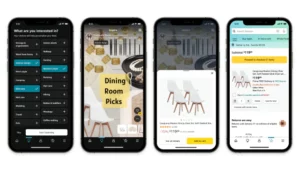TikTok has suspended its online retail operations in Indonesia in response to the country’s ban on e-commerce transactions conducted through social media platforms. This move represents a significant setback for TikTok in its fastest-growing market.

The Indonesian government unveiled this new regulation on September 28, prohibiting social media companies from facilitating the sale of products on their platforms. The ban was enacted to shield small businesses from the competition posed by e-commerce companies, with accusations that popular apps and websites were employing predatory pricing tactics.
In a statement on its website, the Chinese-owned video-sharing platform confirmed that it will cease facilitating e-commerce sales on TikTok Shop Indonesia by 5:00 PM local time on Wednesday. TikTok emphasized its commitment to complying with local laws and regulations.
The Trade Minister of Indonesia, Zulkifli Hasan, explained that the ban is intended to prevent algorithm domination and the exploitation of personal data for business interests. The objective is to establish a fair, healthy, and mutually beneficial e-commerce ecosystem, with marketplaces and sellers permitted to offer or promote goods and services.
A week before the ban’s announcement, Tanah Abang, Southeast Asia’s largest wholesale market in Jakarta, came under scrutiny. Sellers in the market reported over a 50 percent decline in profits, unable to compete with lower-priced imported products available online. This situation was attributed to TikTok’s involvement in predatory pricing, causing harm to local small and medium-sized businesses. The new regulation is seen as an effort to regulate online and offline fair trade.
TikTok Indonesia expressed regret over the government’s decision shortly after the ban was announced, particularly concerning its impact on the millions of sellers who use TikTok Shop. However, the company is committed to respecting the regulations and pursuing a constructive path forward.
Southeast Asia, with a population exceeding 675 million people, represents one of TikTok’s most significant markets in terms of user numbers, attracting more than 325 million monthly visitors to the app.
TikTok, owned by China’s ByteDance, has been scrutinized by various governments and regulators over concerns about potential data harvesting or advancing Beijing’s interests. Several countries, including the United States, Britain, and New Zealand, have banned the app from government devices. TikTok has repeatedly denied sharing data with the Chinese government and stated its commitment not to do so upon request.









